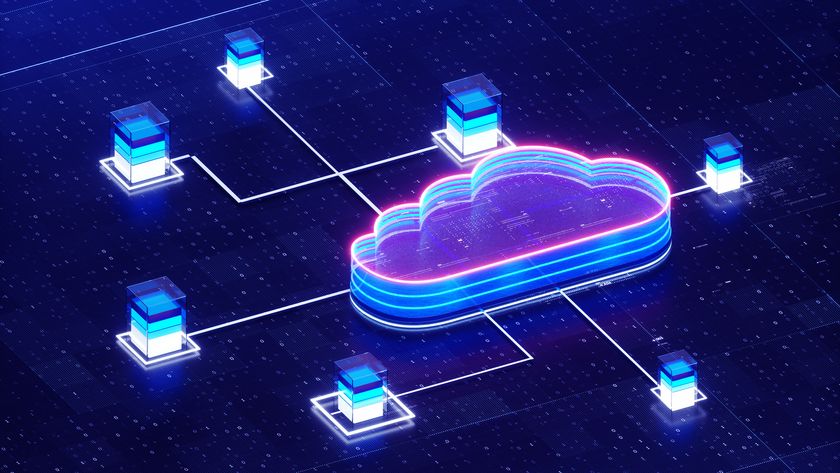How to adapt to survive the unstoppable march of the cloud
MSPs need to future-proof themselves against the proliferation of new technologies, says Rupert Collier

The advent of cloud services is touching all elements of the broader IT industry, and the IT channel is certainly no exception. With so many businesses taking the initiative and seeking out more accessible and cost-effective IT solutions on their own, it begs the question whether the channel still has a credible role to play in enabling businesses to grow.
Take the example of Misco, an IT solutions provider that went out of business earlier this year, having ultimately become uncompetitive in the context of larger and more specialised players within the marketplace. Of course, not all companies in this space will go the same way, but we must ask how similar organisations can future-proof themselves against the proliferation of new technologies, and in particular, the cloud.
The model of application delivery has changed in line with the cloud, but so have traditional purchasing routes. I would argue that while some of the legacy catalogue resellers are facing some tough decisions, this new model leaves more agile MSPs in a sweet spot, whereby they are able to use their expertise to ensure that their customers are able to benefit from a robust IT infrastructure with minimal effort or resource on their part. In fact, far from being an impediment, it could be claimed that the cloud represents a huge opportunity for MSPs and technically advanced partners moving forward.
Back to basics
Ultimately, there is recognition, not just in IT but also in the broader business world, that in spite of increased cloud take-up, traditional IT services aren't going anywhere. Although there are a range of easily accessible SaaS solutions that require minimal IT knowledge or input, the basic tasks and processes that are required to keep an IT network ticking over are as important as ever. In fact, they could even be set to grow as businesses look to migrate increasingly large portions of their services to the cloud.
MSPs can be invaluable when it comes to delivering those particular elements of an IT infrastructure. They are able to take charge of base level IT support, and routine services such as patching and monitoring. Essentially, by focusing on the more day-to-day processes, they are able to free up internal IT teams to concentrate on more strategic IT objectives, and adding value to their organisation.
Staying secure
Another key area where technically advanced partners can play a role in enabling businesses is data security. With a range of significant data breaches taking place throughout 2017 at high profile organisations such as Maersk and Equifax, as well as the new GDPR regulations set to come into effect in May 2018, cyber resilience is an issue that remains at the top of the agenda for IT administrators and company directors alike.
Ensuring high levels of data security has become a key component of the services that many technically competent partners provide, through capabilities such as patching services, next-generation firewalls and alert response on behalf of its customers. By helping to prove proactivity when it comes to cyber security, MSPs can not only help to enable technology for its customers, but also play a part in demonstrating efforts towards regulatory compliance.
Channel Pro Newsletter
Stay up to date with the latest Channel industry news and analysis with our twice-weekly newsletter
Emerging trends
In addition to taking care of routine tasks and improving data security, the work of MSPs can also help to lay the groundwork for integration of new technologies into the existing IT network. Many organisations are already focused on moving to a 'cloud first' model, but as more and more look even further into the future at technologies such as AI and IoT, there is an opportunity for technically competent partners to help make sure that their customers' networks are ready for the shift.
Bringing new technologies into an organisation, particularly those that require massive network alterations such as IoT, is already a resource-intensive task, so having to ensure that the base level network is robust enough is an additional requirement that most IT teams simply do not want to deal with. By having an MSP take on responsibilities such as making sure that security is up to scratch for IoT devices, and ensuring inbound connectivity is of an adequate level, businesses can save time and money in the long run.
Fit for the future
Ultimately, while traditional catalogue resellers perhaps face an uphill struggle in a modern IT environment, it appears that MSPs and channel partners with advanced technical knowledge have in many ways never been more important. By offering a combination of streamlined delivery of base-level IT services, as well as knowledge and experience of the wider marketplace to help provide actionable insights into which services will work best for a particular organisation, those channel partners with technical advice to offer can play a significant role in helping businesses add value with their IT.
Far from facing an insurmountable challenge, those businesses in the IT channel that are willing to adapt to this new landscape have an enviable opportunity to become critical business enablers for their customers, and trusted partners to companies and organisations of all shapes and sizes.
Rupert Collier is senior channel manager, UK & Ireland, at Paessler





















